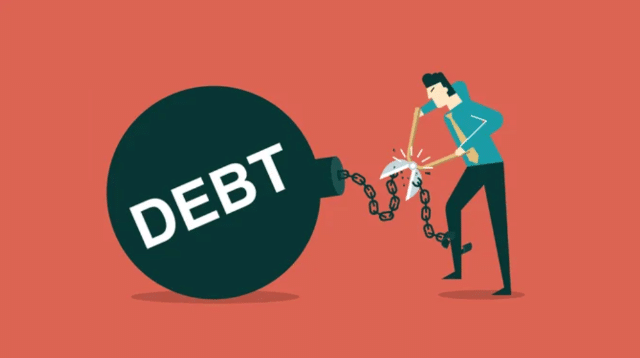Debt is a common financial challenge faced by millions around the world, but how individuals approach debt varies significantly based on their mindset, emotions, and behaviours. These variations can be categorized into “debt personalities”, which are distinct behavioural and psychological patterns that influence how people manage and perceive debt.
Debt personalities are shaped by a range of factors, including upbringing, financial education, personal values, emotional triggers, and life experiences. These personalities often dictate how people respond to financial stress, make decisions about borrowing and repaying money, and ultimately manage their overall financial health.
By understanding your debt personality, you can develop tailored strategies to manage your debt more effectively and make informed financial choices. In this guide, we’ll explore the most common debt personalities and provide strategies for managing debt according to each personality type.
Common Debt Personalities
1. The Avoider
Characteristics:
- Avoids confronting debt issues.
- Fears or is overwhelmed by finances and does not open bills or check account balances.
- Tends to procrastinate on making debt payments or even acknowledging the amount owed.
How It’s Formed:
- Fear or anxiety about money often stems from childhood experiences or a lack of financial education.
- The belief is that ignoring debt will make the problem go away.
Debt Management Tips for the Avoider:
- Face the Debt: The first step is acknowledgement. Create a list of all outstanding debts, including balances and interest rates.
- Automate Payments: Set up automatic payments for minimum amounts to ensure that the debt is consistently paid down.
- Seek Financial Education: Learn the basics of personal finance through resources like books, courses, or a financial advisor.
- Break it Down: Set small, manageable goals to reduce debt rather than being overwhelmed by the entire balance.
2. The Compulsive Spender
Characteristics:
- Enjoys spending money, often on things they don’t need.
- Frequently uses credit cards or takes out loans without considering long-term consequences.
- May justify debt as a way to “live in the moment” or “treat oneself.”
How It’s Formed:
- Emotional spending as a coping mechanism for stress or low self-esteem.
- Societal and cultural pressure to keep up with a certain lifestyle.
Debt Management Tips for the Compulsive Spender:
- Budget Creation: Establish a realistic budget that includes discretionary spending but sets limits.
- Cash-Only Rule: Stick to using cash or debit cards to avoid unnecessary credit purchases.
- Mindful Spending: Before making any purchase, wait 24 hours and ask if it’s a need or a want.
- Accountability Partner: Enlist a trusted friend or financial coach to keep you accountable for your spending habits.
3. The Anxious Saver
Characteristics:
- Fearful of debt and financial insecurity, which leads to over-saving and under-investing.
- Often unwilling to spend money, even on necessities or meaningful experiences, for fear of debt accumulation.
How It’s Formed:
- Growing up in a financially unstable environment or having experienced debt hardship in the past.
- The belief that spending money leads to inevitable financial disaster.
Debt Management Tips for the Anxious Saver:
- Reframe Debt: Understand that not all debt is bad. Some forms, like mortgages or student loans, can be investments in the future.
- Emergency Fund: Build an emergency savings fund to provide peace of mind in case of unexpected expenses, which may reduce anxiety about debt.
- Balance Saving and Spending: Learn to invest wisely in experiences or tools that can enhance life quality, while still saving for the future.
- Professional Guidance: Consult with a financial advisor to help create a balanced plan that includes both savings and healthy debt management.
4. The Rational Debtor
Characteristics:
- Approaches debt with logic and a clear repayment plan.
- Often uses debt strategically, such as for investments or advancing career goals.
- Is disciplined about making payments and managing interest rates.
How It’s Formed:
- Financial education or experience with successfully managing debt in the past.
- A pragmatic approach to borrowing and spending.
Debt Management Tips for the Rational Debtor:
- Continue Education: Stay informed about interest rates, debt consolidation options, and investment opportunities.
- Leverage Debt Wisely: Use debt for investments that will provide future returns, such as real estate or education.
- Review Financial Plans: Periodically reassess your financial strategies to ensure they align with long-term goals.
- Avoid Over-Leveraging: While using debt wisely, be cautious not to overextend credit or risk financial strain.
5. The Carefree Borrower
Characteristics:
- Does not view debt as a serious issue and may be unconcerned about paying it off quickly.
- Often relies on minimum payments or continually refinances debt without creating a plan to eliminate it.
- May have a positive outlook on debt, thinking it will be easy to repay in the future.
How It’s Formed:
- Optimism bias, where individuals believe future income will resolve any current financial issues.
- A history of easy credit access or financial assistance that has minimized the perceived consequences of debt.
Debt Management Tips for the Carefree Borrower:
- Set Realistic Goals: Create specific goals for paying off debt, such as targeting high-interest debt first.
- Debt Snowball Method: Use strategies like the snowball method, where smaller debts are paid off first, providing a psychological boost.
- Understand Interest: Learn about the long-term cost of paying only minimum amounts, especially in terms of accumulated interest.
- Create a Debt-Free Vision: Visualize life without debt and focus on how much more financial freedom you can gain.
Check out
Not All Debt Is Bad. How To Use Debt To Grow Your Wealth
How To Manage Debt: A Step-By-Step Guide For All Debt Personalities

















